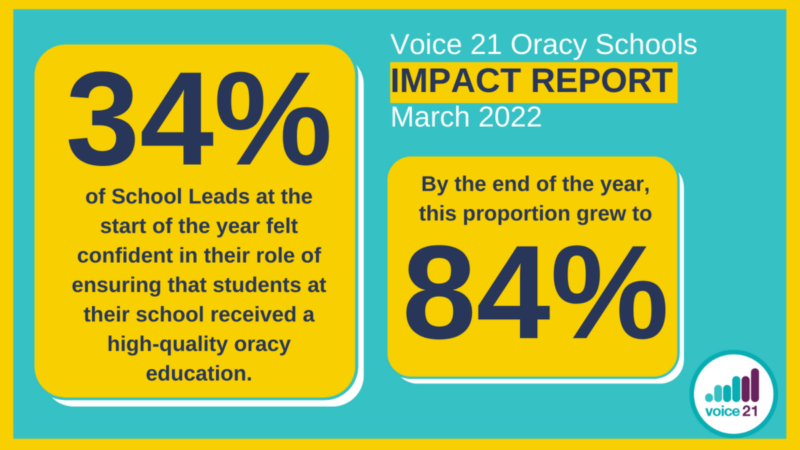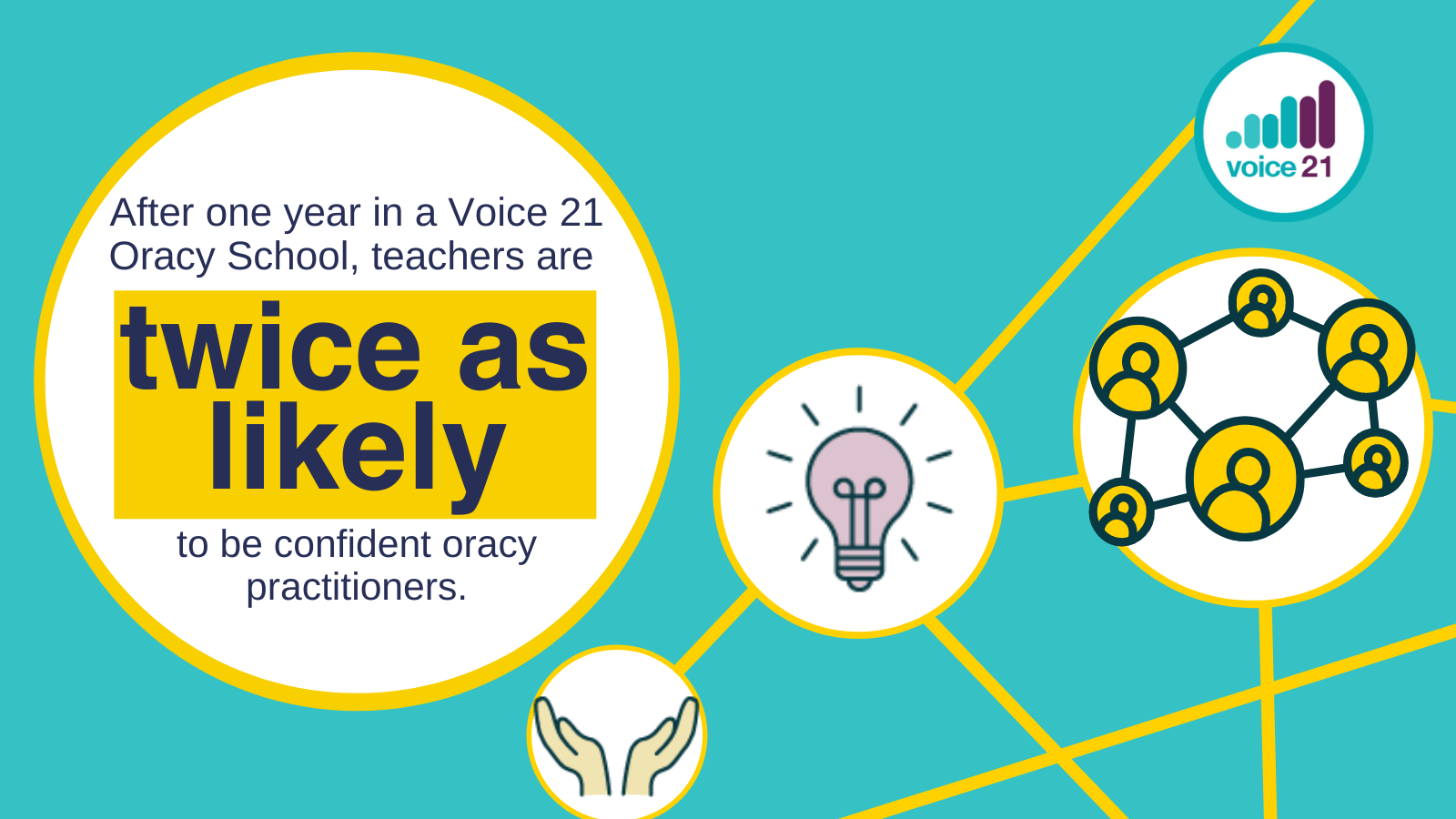Voice 21 Oracy Schools are at the heart of everything we do at Voice 21. We want to make sure that the committed and passionate teaching professionals we work with get the best support and advice we could possibly provide. We do this by gathering both quantitative and qualitative data throughout the year, to help us to understand the impact of our work on member schools and their students, and how we can learn and grow to make even more of a difference. So if you’ve ever completed a Voice 21 Oracy Survey or feedback form, spoken to us as part of a focus group or interview, or invited us into your school to see the direct impact of oracy on students, thank you!
One way in which we monitor our impact is through our Oracy Surveys. We ask teachers and students in Voice 21 Oracy Schools to complete these each year so that we can understand how they’re progressing on their oracy journey. Last year, these surveys were completed by 8,000+ teachers and 13,000+ students. You can read more about what we found in our Impact Report – and in this post, we’re going to focus on oracy leadership in our schools.

In every Voice 21 Oracy School, there’s someone driving change across the school. Whilst around half of our School Leads are in the senior leadership team, the rest are middle leaders and classroom teachers, who in some cases are taking on whole-school change for the first time. We support School Leads with a blend of in-person and online learning, and bespoke 1-1 consultancy to help them to implement oracy approaches in their school context
Last year, our surveys found that working with Voice 21 develops the leadership capacity of these School Leads, empowering them to drive change across their schools. At the start of the year, only 34% of School Leads felt confident in their role of ensuring that students at their school received a high-quality oracy education. By the end of the year, this proportion grew to 84%.
We also know that this growth in leadership-capacity matters. We saw oracy taking root as a result throughout our schools, whether in terms of teachers’ classroom practice, or whole-school initiatives. After one year in a Voice 21 Oracy School, teachers are twice as likely to be confident oracy practitioners – and the schools with the most confident School Leads made accelerated progress.
Last year 13,000+ students responded to our Oracy Surveys. They told us about the ways in which oracy helped them with their learning – that they learnt from the perspectives of others in their class, and being able to share and develop their own thinking.
89% of students agree/strongly agree that speaking and listening has helped them make progress with their school work.
“I think […oracy is] important because if people couldn’t talk then you wouldn’t understand what they are thinking.” (Y2 student, Voice 21 Oracy School)
Students also told us about the ways in which oracy had supported their wellbeing on the return to the classroom last year – that their teachers supported them to articulate their emotions, to make friends and ensure their class is a supportive space where everyone is valued.
78% of students agree/strongly agree that speaking and listening has helped them to share how they feel at school
“[Oracy] is important because if we don’t talk to other people then our emotions will be locked inside […]. If we don’t listen to other people then they might think that we just don’t care.” (Y7 student, Voice 21 Oracy School).
To read our 2021 Voice 21 Oracy Schools Impact Report, click here.

© 2024 Voice 21. Voice 21 is a registered charity in England and Wales. Charity number 1152672 | Company no. 08165798